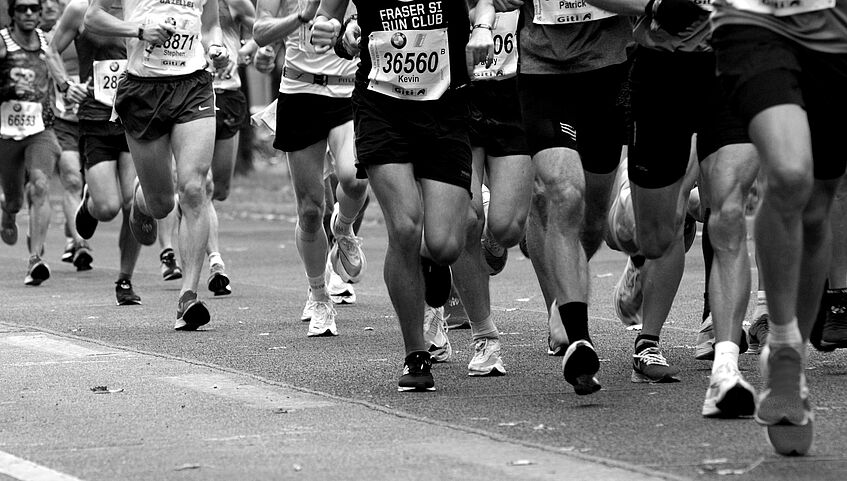Glycemic Index and Substrate Metabolism
Influence of Diets with Different Glycemic Indices and Carbohydrate Contents on Substrate Utilization, Energy Storage, and Performance-Related Parameters in Endurance-Trained Men
Since the beginning of the 20th century, carbohydrates and their influence on performance have been of interest to researchers. It is already clear that the intake of carbohydrates before and during exercise delays fatigue during prolonged exercise and improves performance.
In order to keep performance at a high level for as long as possible during endurance exercise, it is advantageous to conserve carbohydrate stores and obtain the majority of the required energy from fats, since fat stores provide more than sufficient energy, whereas carbohydrate stores are limited.
Under stress, the body always uses the nutrient that is most available and provides sufficient energy. Substrate use can be influenced by various strategies. One way would be to reduce carbohydrate intake so that the body relies on fats for energy. However, substrate utilization can also be influenced by the glycemic index (GI). The GI indicates the extent to which a meal, food, or specific carbohydrate affects blood glucose. Foods with a high GI therefore also result in a higher and faster increase in blood glucose concentration than those foods with a low GI. The classification of carbohydrates according to their GI not only makes sense from a nutritional point of view, but also plays an important role in some diseases, such as type 2 diabetes mellitus or coronary heart disease.
So far, there are very few meaningful studies on GI and its influence on substrate metabolism. Thus, it is already widely known that carbohydrates affect performance during prolonged exercise, but the role of glycemic index in this process and the extent to which it affects substrate utilization is not yet definitively understood.
This project aims to investigate the effects of carbohydrates on performance and substrate utilization with particular emphasis on the glycemic index.
For this, the research project asks itself the following questions:
- Can a low glycaemic index carbohydrate diet achieve the same adaptations in basic endurance/fat metabolism as a high fat, low carbohydrate diet (ketogenic diet)?
- Are improvements in submaximal and maximal performance prevented by a high-fat, low-carbohydrate diet compared to a high-carbohydrate diet?
- What is the effect of diets with different carbohydrate content and variable glycaemic index on endurance performance in a half marathon or time trial?
- How do diets with different carbohydrate content and variable glycaemic index affect the energy or glycogen stores in the muscles?

